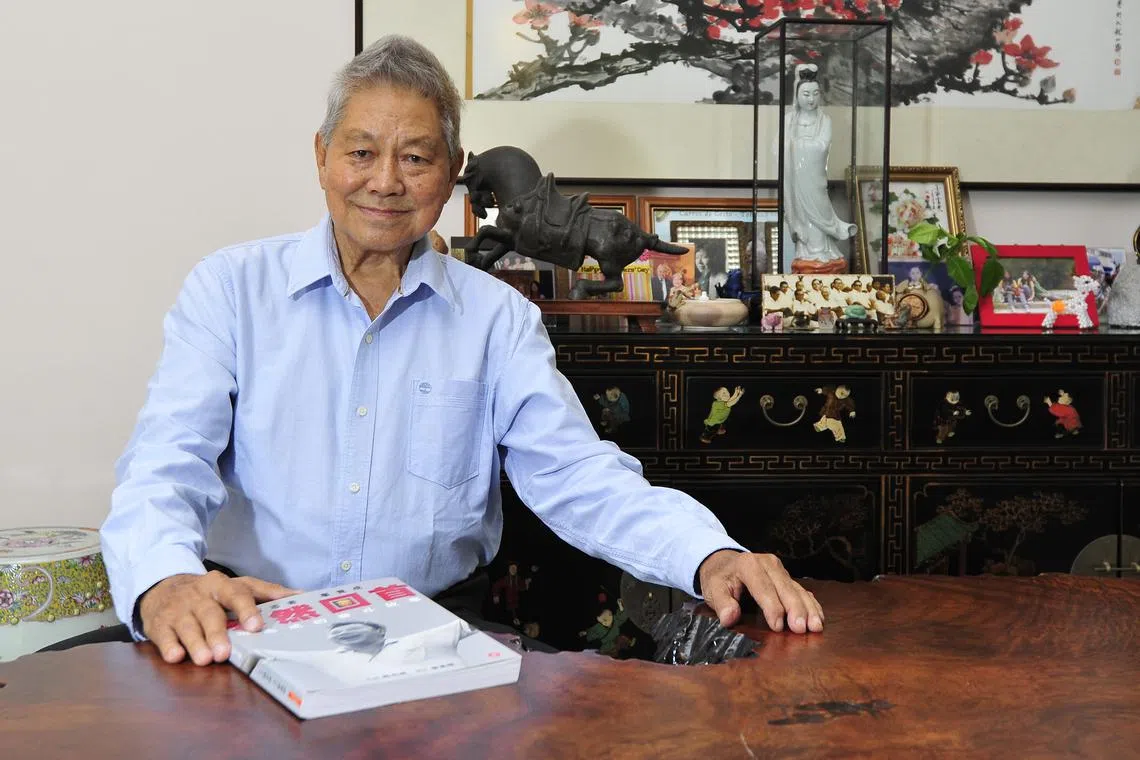PAP might have lost battle with pro-communists if not for ex-MP Chan Chee Seng: PM Lee
Sign up now: Get ST's newsletters delivered to your inbox

A 2015 file photo of former senior parliamentary secretary Chan Chee Seng, who died on Saturday aged 90.
PHOTO: ST FILE
SINGAPORE – If not for the contributions of former politician Chan Chee Seng, the People’s Action Party (PAP) might have lost its battle with pro-communists in the party’s nascent years, said Prime Minister Lee Hsien Loong on Monday.
Mr Chan, a former senior parliamentary secretary and pioneer member of the PAP, died on Saturday at the age of 90,
He was a longstanding MP for Jalan Besar, holding the ward for more than 20 years.
In a condolence letter to Mr Chan’s wife, Mrs Chan Ching Oi, PM Lee recounted a motion of confidence vote in 1961, in which Mr Chan’s intervention was critical in helping the fledgling PAP Government to survive.
PM Lee, who is the PAP’s secretary-general, wrote that the non-communists were one vote shy of being defeated in the vote, held in the Legislative Assembly.
“With great presence of mind, Chee Seng rushed to see Madam Sahorah Binte Ahmat, who was ill in hospital,” wrote PM Lee, adding that Mr Chan persuaded the assemblywoman to support the motion.
“She arrived in an ambulance, was carried on a stretcher into the Legislative Assembly, and entered the chamber just before its doors were locked for the vote to be taken,” PM Lee said.
“The pro-communists were outmanoeuvred and outnumbered, and abstained in the vote,” said PM Lee, adding that “Chee Seng’s intervention made every difference”.
Following the vote, the pro-communist faction broke away to form the Barisan Sosialis. Many PAP branch secretaries went over to the Barisan side, which “wreaked havoc on the PAP branches”, PM Lee said.
Mr Chan then accompanied Mr Lee Kuan Yew to visit the branches and physically recover the PAP’s property, including typewriters, chairs and tables.
Referring to this episode in his memoirs, the late Mr Lee had described Mr Chan as “impervious to intimidation”, wrote PM Lee.
He noted that tensions between the pro-communists and non-communists grew after the PAP formed the government following the 1959 general election.
“Like many others, Chee Seng came under tremendous pressure to switch sides,” he wrote, noting that many succumbed, but the late Mr Chan, who was recruited by Mr S. Rajaratnam to join the PAP, “never wavered”.
“He was steadfast and courageous, staunchly loyal and absolutely dependable.”
In the letter, PM Lee also paid tribute to Mr Chan for his various contributions within and outside of politics.
Mr Chan was fielded as a candidate in the city council elections of 1957, and he stood in Jalan Besar, winning “one of the most significant contests” convincingly, PM Lee said.
In 1959, he was elected legislative assemblyman for Jalan Besar and served there for six terms until 1984, when he retired from politics.
At different points of his political career, Mr Chan was also a parliamentary secretary for home affairs, and senior parliamentary secretary for social affairs as well as trade and industry.
“He brought his passion as an avid sportsman to help develop our Singapore sports,” said PM Lee, citing Mr Chan’s stints as vice-president of the Singapore National Olympic Council and president of the Singapore Amateur Swimming Association.
Mr Chan was also the chef de mission of the Singapore contingent at the 1977 SEA Games.
He had also pursued his passion for education, noted PM Lee. In 1981, Mr Chan founded ISS International School, where his wife is currently chief executive.
“Chee Seng will be deeply missed,” wrote PM Lee. “He stood up when it mattered most. He was a fearless and undaunted comrade of our founding leadership, who all had a high regard for him. He served Singapore well.”
Mr Chan is survived by his wife, two daughters and three grandchildren.



